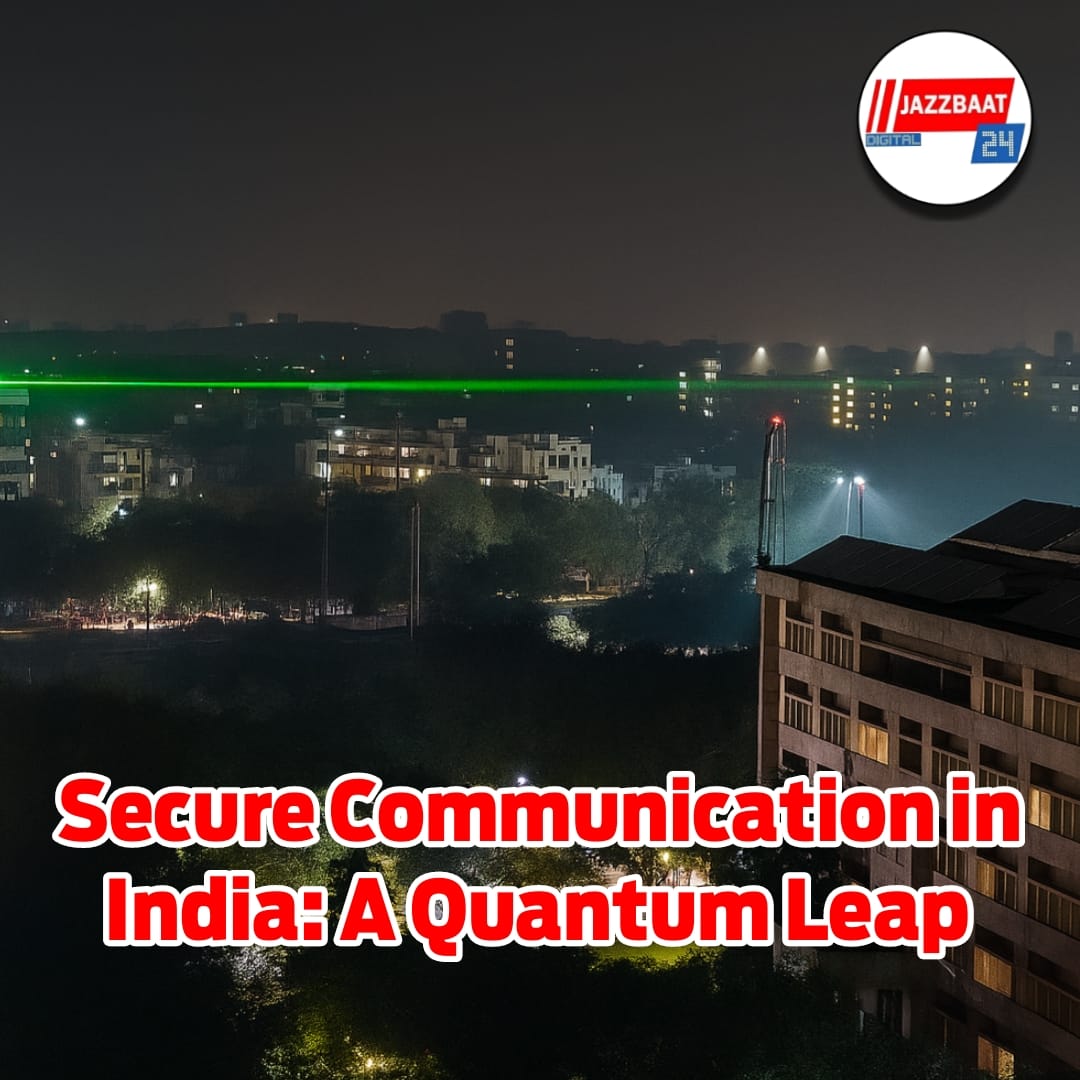
New Delhi, June 17, 2025:
India's quantum communication capabilities have advanced significantly with the successful demonstration of a free space quantum key distribution (QKD) system over a distance of more than one kilometer by the Defence Research and Development Organisation (DRDO) and IIT Delhi.
The experiment, which was carried out on the IIT Delhi campus under the DRDO Industry Academia Centre of Excellence, used entangled photons to create a secure optical link without the need for fiber-optic cables. With a quantum bit error rate of less than 7%, the system was able to achieve a secure key rate of about 240 bits per second.
With the words, "India has entered a new quantum era of secure communication which will be a game changer in future warfare," Defense Minister Rajnath Singh congratulated the teams. The ministry emphasised that any attempt at interception would disrupt the quantum state of the entangled photons, promptly notifying the authorised parties of the breach.
This groundbreaking action marks a significant advancement in quantum cybersecurity and opens the door for real time applications in quantum networks and the future quantum internet. The technology has significant implications for protecting sensitive data in telecommunications, finance, and other strategic sectors in addition to national defense.
Under the direction of Professor Bhaskar Kanseri's group, the project was carried out under the DRDO funded "Design and development of photonic technologies for free space QKD." Senior DRDO officials, including the Director General of Modern Equipment Development and the Dean (Research and Development) of IIT Delhi, witnessed the successful demonstration.
In 2022, India completed a QKD link consisting of more than 100 km of commercial fiber optics between Vindhyachal and Prayagraj. More recently, in 2024, more than 100 km of telecom grade fiber was completed. Nonetheless, this is the first demonstration of free space entanglement that spans more than a kilometer, creating opportunities for integration with satellites and ground stations.
This development, according to analysts, puts India in a strong position to lead the world in quantum communication research. Additionally, it is in line with the National Quantum Mission, which was introduced in 2023 and places a high priority on secure communication infrastructure and scalable quantum networks. This accomplishment highlights India's dedication to domestic innovation in strategic technologies at a time when global competition in quantum technologies is becoming more intense.
In order to further improve the nation's quantum secure architecture, plans are already in place to integrate free space QKD with satellite systems and extend it over greater distances.